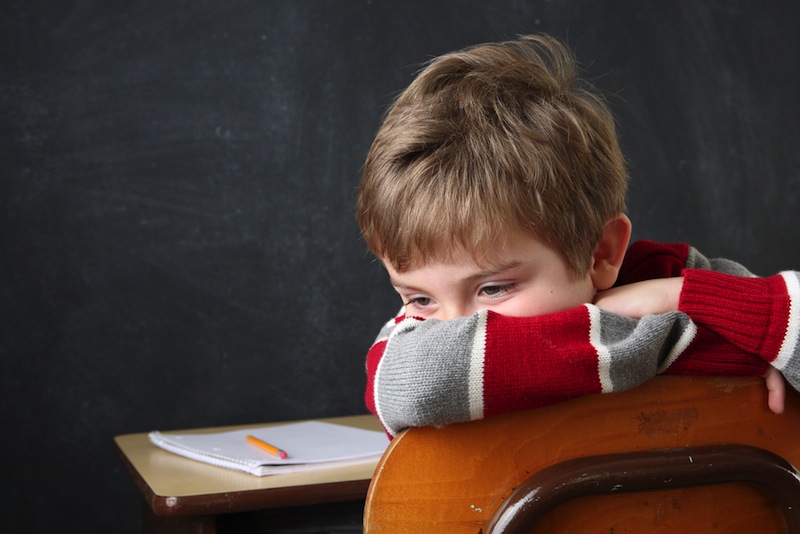Traits of Autism Seen in Some Kids with ADHD

Get the world’s most fascinating discoveries delivered straight to your inbox.
You are now subscribed
Your newsletter sign-up was successful
Want to add more newsletters?

Delivered Daily
Daily Newsletter
Sign up for the latest discoveries, groundbreaking research and fascinating breakthroughs that impact you and the wider world direct to your inbox.

Once a week
Life's Little Mysteries
Feed your curiosity with an exclusive mystery every week, solved with science and delivered direct to your inbox before it's seen anywhere else.

Once a week
How It Works
Sign up to our free science & technology newsletter for your weekly fix of fascinating articles, quick quizzes, amazing images, and more

Delivered daily
Space.com Newsletter
Breaking space news, the latest updates on rocket launches, skywatching events and more!

Once a month
Watch This Space
Sign up to our monthly entertainment newsletter to keep up with all our coverage of the latest sci-fi and space movies, tv shows, games and books.

Once a week
Night Sky This Week
Discover this week's must-see night sky events, moon phases, and stunning astrophotos. Sign up for our skywatching newsletter and explore the universe with us!
Join the club
Get full access to premium articles, exclusive features and a growing list of member rewards.
Nearly one in five children with attention-deficit/hyperactivity disorder (ADHD) have traits that are common among children with autism, and having these traits appears to increase children's risk of experiencing impairments in their everyday lives, a new study suggests.
Among children in the study with ADHD, 18 percent had autistic traits, while less than 1 percent of children without ADHD had such traits.
Children with ADHD and autistic traits were more likely to get in fights, be rejected by their peers, and have problems in school and with their siblings, compared with children with ADHD who did not have the autistic profile, the researchers said in their study. [Typical Toddler Behavior, or ADHD? 10 Ways to Tell]
Those with both ADHD and autistic traits were also more likely to have other psychiatric conditions, such as disruptive behaviors, mood disorders, anxiety disorders and language disorders.
The study included 240 children with ADHD, and 227 children without the condition. Most of the children were between ages 8 and 14; parents answered questions about their child's behavior.
The researchers assessed whether children exhibited symptoms similar to those seen in children with autism, such as withdrawnness and social disability, although none of the children in the study had symptoms that were severe and frequent enough to be diagnosed with autism.
Previous studies have found that certain genetic changes are present in both children with ADHD and children with autism, suggesting the two conditions may share a common origin, according to the researchers, who were led by Amelia Kotte, an ADHD researcher at Massachusetts General Hospital in Boston.
Get the world’s most fascinating discoveries delivered straight to your inbox.
Identifying children with ADHD who also have autistic traits may help researchers develop treatments for these particular children, according to the study. For instance, their treatment may need to have a greater focus on expanding social skills.
Because the study involved mostly white children, the findings may not apply to other ethnic groups.
The study is published today (Aug. 26) in the journal Pediatrics.
Follow Rachael Rettner @RachaelRettner. FollowLiveScience @livescience, Facebook & Google+. Original article on LiveScience.

Rachael is a Live Science contributor, and was a former channel editor and senior writer for Live Science between 2010 and 2022. She has a master's degree in journalism from New York University's Science, Health and Environmental Reporting Program. She also holds a B.S. in molecular biology and an M.S. in biology from the University of California, San Diego. Her work has appeared in Scienceline, The Washington Post and Scientific American.
 Live Science Plus
Live Science Plus










